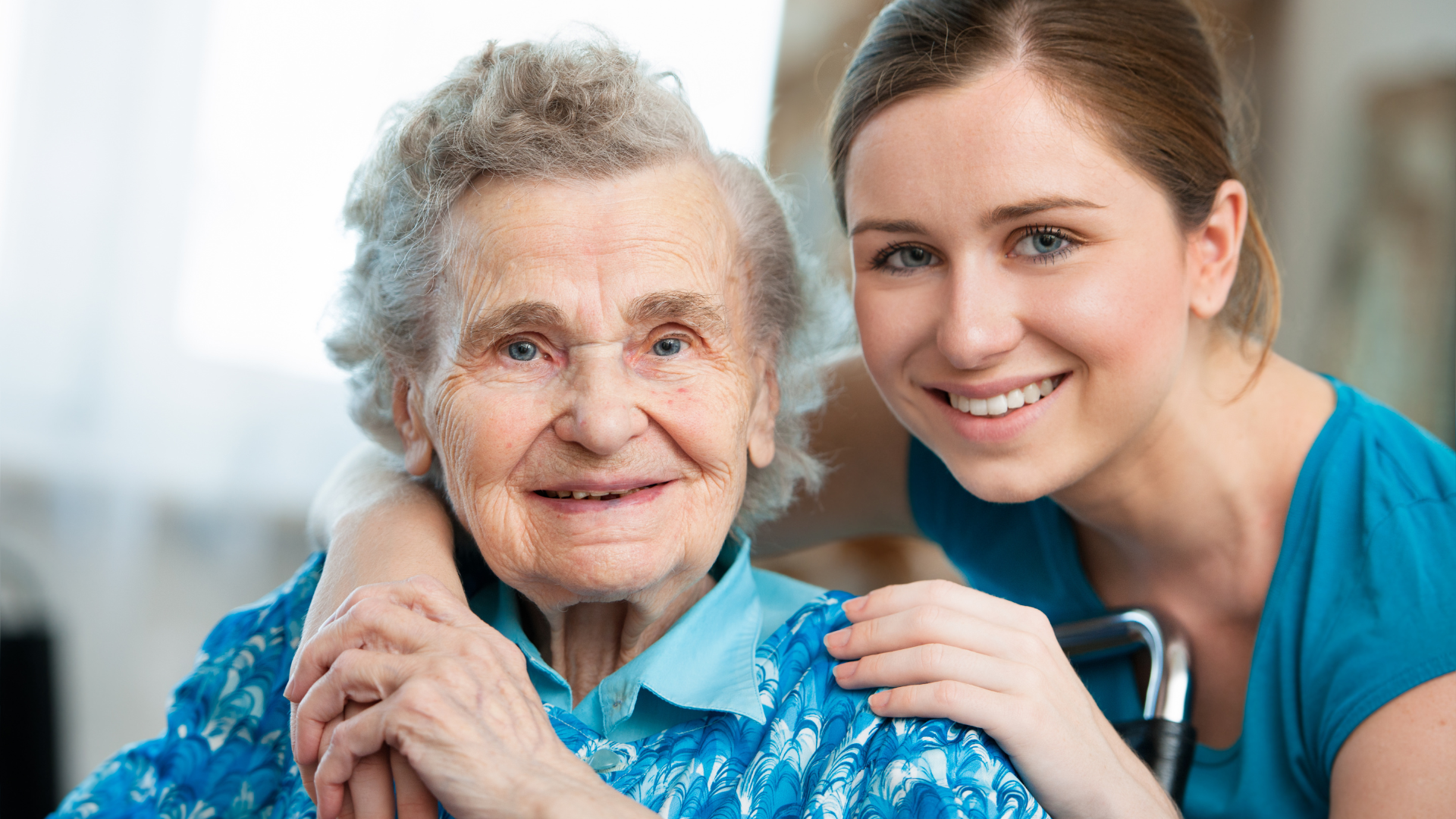How Can Alzheimer's Care to Improve Quality Of Life?
In the complex landscape of neurological disorders, Alzheimer's disease stands as a formidable challenge, affecting millions globally. This progressive condition impairs cognitive functions, leading to memory loss and altered daily living. Amidst this struggle, the significance of preserving the quality of life for individuals with Alzheimer's cannot be overstated. This blog aims to shed light on the critical link between Alzheimer's care and enhancing the well-being of those affected. By delving into various strategies and approaches, we embark on a journey to explore ways to improve Alzheimer's care, fostering a better quality of life for both patients and their caregivers.
Understanding Alzheimer's Disease
Alzheimer's, a neurodegenerative disorder, progressively impairs cognitive functions, primarily memory and reasoning. As plaques and tangles accumulate in the brain, communication between nerve cells breaks down, affecting daily life. Individuals may experience confusion, forgetfulness, and challenges in problem-solving. Understanding Alzheimer's is crucial for caregivers and loved ones to provide empathetic support. This blog briefly explores the disease's impact, emphasizing the need for awareness and compassion in navigating the complexities of Alzheimer's.
The Crucial Role of Caregivers in Alzheimer's Care
In the intricate tapestry of Alzheimer's care, caregivers emerge as unsung heroes, providing unwavering support and compassion to individuals navigating the challenging terrain of this neurodegenerative disease. This blog delves into the pivotal role that caregivers play, exploring the significance of a supportive caregiving environment, the unique challenges they face, and the profound impact of building strong caregiver-patient relationships.
Importance of a Supportive Caregiving Environment
Creating a nurturing and empathetic environment is paramount in Alzheimer's care. Caregivers serve as anchors, offering emotional support, understanding, and a sense of security for individuals grappling with cognitive decline. Establishing routines, maintaining familiarity with surroundings, and fostering a sense of safety contribute to a more conducive caregiving atmosphere.
Challenges Faced by Caregivers
Caregiving for individuals with Alzheimer's comes with its own set of challenges. The emotional toll of witnessing a loved one's cognitive decline, coupled with the demands of providing round-the-clock care, can lead to caregiver burnout. Financial and logistical challenges further compound the complexities, underscoring the need for comprehensive support systems.
Building Strong Caregiver-Patient Relationships
The foundation of effective Alzheimer's care lies in the relationships forged between caregivers and individuals with the disease. Communication, patience, and empathy become paramount as caregivers navigate the evolving needs of their loved ones. Establishing routines, incorporating meaningful activities, and adapting to the unique preferences of each individual contribute to the development of strong, trusting bonds.
Empowering Caregivers
Recognizing the significance of caregiver well-being, empowerment becomes a crucial aspect. Providing access to education, resources, and respite care allows caregivers to navigate their roles more effectively. Empowered caregivers, armed with knowledge and support, can better contribute to the enhanced quality of life for individuals with Alzheimer's.
As we unravel the layers of Alzheimer's care, the indispensable role of caregivers comes into sharp focus. Beyond the physical aspects of care, caregivers provide emotional sustenance, fostering an environment where individuals with Alzheimer's can maintain dignity and a sense of self. This blog serves as a tribute to caregivers, highlighting the vital role they play in the intricate tapestry of Alzheimer's care and the immeasurable impact they have on the lives of those they support.

Holistic Approaches To Alzheimer's Care
In the pursuit of improving Alzheimer's care and enriching the lives of those affected, a holistic approach emerges as a beacon of hope. This blog explores the transformative power of holistic care strategies, integrating alternative therapies, mindfulness practices, and collaborative efforts to provide comprehensive support for individuals navigating the complex landscape of Alzheimer's disease.
- Integrating Alternative Therapies: Music therapy, art therapy, and aromatherapy are effective methods for individuals with Alzheimer's to improve their emotional well-being. Music therapy uses music to evoke memories, improve mood, and enhance overall well-being. Art therapy uses creative expression through painting, drawing, and other activities, while aromatherapy uses scents to create a soothing environment.
- Mindfulness and Relaxation Techniques: Yoga and meditation are effective techniques for managing stress, enhancing focus, and promoting mental well-being. Breathing exercises, which involve deep, intentional breathing, can also help in relaxation and alleviate anxiety, contributing to a sense of inner peace.
- Collaborating with Healthcare Professionals: Collaborative care teams involving healthcare professionals like neurologists, psychologists, and nutritionists ensure comprehensive Alzheimer's care, addressing both the physical and mental aspects of the disease. A holistic approach, assessing physical, emotional, and social dimensions, is essential for creating personalized care plans that enhance the overall quality of life for individuals with Alzheimer's.
- Empowering Caregivers and Families: Education and training for caregivers can enhance their support by providing knowledge about holistic care practices and alternative therapies. Respite care, which offers temporary relief, reduces burnout risk, and ensures high-quality care by allowing caregivers to recharge and provide sustained care.
Holistic approaches to Alzheimer's care acknowledge the interconnectedness of mind, body, and spirit. By embracing alternative therapies, mindfulness practices, and collaborative efforts, we pave the way for a more compassionate and comprehensive approach to supporting individuals with Alzheimer's. This blog celebrates the transformative potential of holistic care, highlighting its role in enhancing the overall well-being and quality of life for those navigating the challenging journey of Alzheimer's disease.

The Vital Role Of Education And Training In Alzheimer's Care
In the intricate realm of Alzheimer's care, caregivers serve as the backbone of support for individuals grappling with cognitive decline. This blog delves into the paramount importance of education and training for caregivers, exploring how knowledge empowers them to navigate the complexities of Alzheimer's, provide effective care, and enhance the overall quality of life for both themselves and their loved ones.
The Need for Caregiver Education
- Understanding Alzheimer's Disease: Education serves as a foundation, equipping caregivers with a profound understanding of Alzheimer's disease. Grasping the nuances of its progression, symptoms, and challenges enables caregivers to tailor their approach to meet the unique needs of the individuals they care for.
- Cognitive and Behavioral Strategies: Comprehensive education encompasses cognitive and behavioral strategies essential in managing the daily challenges presented by Alzheimer's. Caregivers learn techniques to address memory loss, communication difficulties, and behavioral changes with patience and empathy.
Training Programs and Resources
- Online Courses and Workshops: The digital age brings forth a plethora of online courses and workshops tailored for caregivers. These resources cover a spectrum of topics, from understanding the disease to practical caregiving techniques, providing accessible and flexible learning opportunities.
- Local Support Groups: Community-based support groups offer a valuable platform for caregivers to share experiences, gain insights, and access practical advice. These gatherings foster a sense of community and provide a space for emotional support.
Empowering Caregivers for Personalized Care
- Tailoring Care Plans: Armed with education, caregivers can develop personalized care plans that consider the unique preferences and needs of the individuals they support. This individualized approach enhances the effectiveness of care strategies.
- Crisis Management and Decision-Making: Education empowers caregivers to navigate crises effectively and make informed decisions. Understanding the potential challenges that may arise allows caregivers to respond with resilience and resourcefulness.
Addressing Caregiver Well-Being:
- Stress Management and Self-Care: Caregiver education extends beyond the realm of Alzheimer's disease to encompass stress management and self-care. Training programs emphasize the importance of maintaining caregiver well-being to prevent burnout.
- Respite Care Opportunities: Educated caregivers are more likely to recognize the need for periodic respite. Access to respite care opportunities allows caregivers to recharge, ensuring sustained high-quality care for the long journey of Alzheimer's caregiving.
Education and training form the cornerstone of effective Alzheimer's care. By providing caregivers with the knowledge and tools necessary to navigate the challenges of the disease, we empower them to create a more supportive and enriching environment for individuals with Alzheimer's. This blog celebrates the transformative impact of education on caregivers, recognizing their indispensable role in enhancing the overall quality of life for those affected by Alzheimer's.
Conclusion
In conclusion, our exploration into Alzheimer's care underscores the pivotal role caregivers play and the transformative impact of holistic approaches. By understanding the disease, fostering strong caregiver-patient relationships, and embracing holistic strategies, we pave the way for improved quality of life. We invite you to contact us today or visit our website for resources and support. Let's continue to advocate for ongoing research and advancements in Alzheimer's care, ensuring a brighter and more compassionate future for those affected. Together, we can make a meaningful difference in the lives of individuals with Alzheimer's and their dedicated caregivers.


